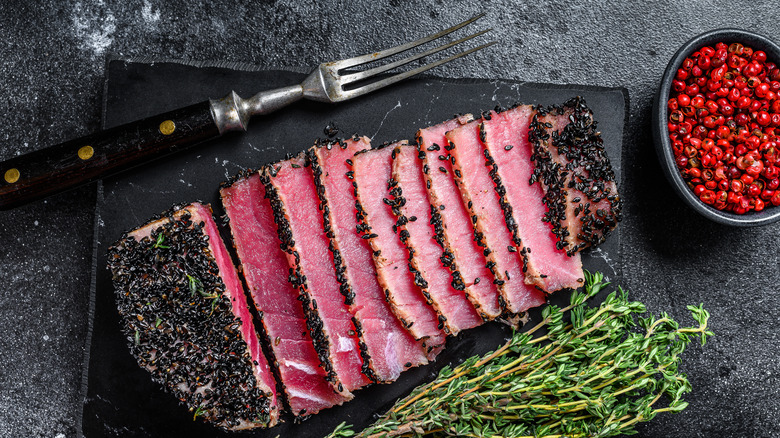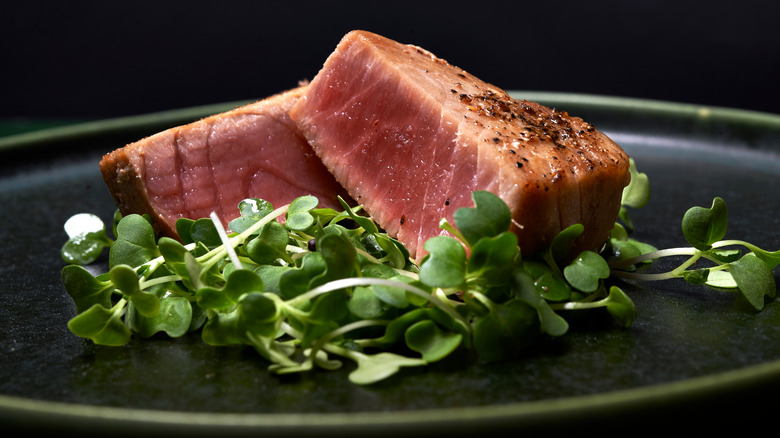The Reason You Should Always Brine Tuna
When cooking meat, one of the easiest techniques that pays off with big rewards is brining the meat ahead of time. Recommended for lean cuts such as chicken breasts and pork tenderloin, brining not only adds flavor to the meat as the salt penetrates the fibers, but it also actually restructures the proteins in the flesh, allowing the cells to hold on to more moisture and therefore stay juicy as they cook (via Taste of Home). And while many of us may have brined a pork chop or a whole turkey in our day, did you know that brining fish and shellfish is highly recommended, too?
According to Cook's Illustrated — which tested brining tuna, salmon, swordfish, and halibut — this simple saltwater soak brings the same benefits to many types of fish as it does to meat and poultry, turning out steaks and filets that are better seasoned and moister than their unbrined counterparts. So if you love slicing into a tuna steak, make sure you're well-stocked on salt the next time you visit your favorite fishmonger.
Tuna can be wet-brined or dry-brined
If you enjoy cooking tuna at home, but you've never thought to brine the fish first, here's your heads up to do so. According to Cook's Illustrated, brining fish in a 6% brine — i.e., five tablespoons of salt dissolved in two quarts of water — improved flavor and texture in each of the four types of fish, including tuna, that their test kitchen evaluated. As it does with meat, a brine imparts flavor to fish and improves texture by partially dissolving muscle fibers into a gel that holds moisture and helps keep the fish from drying out as it cooks. Best of all, brining fish is a much quicker process than brining meat: Because the muscle fibers in fish are so much shorter than in meat, the brine does its work in just about 15 minutes.
Cook's Illustrated tested wet-brined fish to see if it would still brown up nicely when cooked, and the good news is that it did as long as it was blotted with paper towels first. But, according to Serious Eats, if you feel like using a dry brine — which the outlet defines as sprinkled sprinkling salt on a protein and leaving it to sit before cooking — you can go that route, too. Another benefit to brining fish? The protein is less likely to leach albumin, that harmless though unattractive white coagulation, as it cooks, making for a prettier piece of fish (via Cook's Illustrated).

